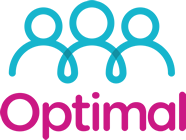Five Values for Successful Leadership
Forming a team and creating trust is quite difficult. Especially if you are a busy manager who is also expected to perform in a role whilst managing the team. It can be quite natural for people in a position of authority to feel they need to communicate that authority.
“If they fear me, they will listen and do as I say”
Is that statement correct? Well in most circumstances yes but what we should be asking ourselves is what do we want from our teams. If we want individuals to sit and automate tasks, then great this method may work well. But if you want a forward-thinking team who are not just performing in their role but are also contributing to the team development, business growth, troubleshooting, adapting with change and raising ideas and concerns then this approach will not work.
In my view, whole teams need to work collaboratively, face up to challenges, tackle problems, find solutions and deliver results. Sounds good doesn’t it? So how do we achieve this?
Here’s my top five values I feel are required when leading high performing teams:
Honesty. Creating an open and honest environment is vital and should be one of the first priorities. Whilst working through the forming stage on a new team and getting to know each other you need to be able to have direct and honest conversations. You need to be able to say you are not sure how to do something and ask if anyone can help. You need to be able to say you made a mistake and notify the correct people. You need to be able to check in with each other and ask a colleague how they are. Getting this right will take you to the performing stage a lot quicker. People often feel more at ease and safer in an honest environment. When team members feel they are unable to be honest in this way they may hide mistakes or try rectifying them alone. This can be more damaging for the business.
Equality. From my personal experience teams work best when everyone is treated equally. Although there is a hierarchy on paper every individual should be treated with equal respect. Each role is critical to ensure whole processes are completed. If one was taken away the full service would not be provided. Therefore, every task should be seen as value add. The best ideas can sometimes come from the most junior team members who bring a fresh outlook and can see what others may overlook. These team members should feel empowered to contribute and share their ideas and not feel as their voice should not be heard.
Collaborative. Often roles interlink without employees linking. Ask yourself; Do all team members have good working relationships? Do we have effective communication within the team? Do we work as a team on shared goals or are we all operating independently? What will bring the most value to the business and its customers/clients?
When setting targets one thing to keep in mind is individual targets can lead to fierce competition and lone working, whilst this might bring short term results it can cause long term damage to the team environment. Group targets are a great way of allowing all individuals to utilise their key strengths, to plan set roles and tasks to achieve their mutual goal.
Supportive. When working collaboratively you will notice colleagues automatically become more supportive of one another. When you are all playing a role working towards the same goal you want to ensure your colleagues are ok and working well. You start to care about each other’s wellbeing more and I think this is possibly also because you notice more about each other when working more closely. In a supportive work environment, nobody experiences extreme pressure even with high targets and short deadlines. Feeling supported at work is proven to lower stress levels.
Regular Reviews. These are a great way to encourage two way discussions. The introverts in the team may not wish to approach you directly, establishing dedicated time provides the opportunity to share anything that is on their mind. This could be a new idea, a request for development opportunities or to confide about a problem outside of work. By building strong relationships and really understanding your team members you can learn how to achieve the best from them. Some will be incentivised by financial gain or flexibility, others will be looking for a challenge and sense of achievement. Do you know how best to motivate all your team members? If not start to get to know them better on an individual level and see what makes them tick.
Managing by fear will only provide limited results, we want to lead with authenticity. When people believe in you and the journey you are all on, you will find managing them easier. When you manage a team you spend a lot of time on the details of how you reach your goal. When the main goal is broken down into individual goals each team member is able to focus on their key responsibilities and the manager can operate at a higher level leaving the details to individuals in the team.
If you would like to discuss management and leadership within your business then contact me to discuss what options would be best for you. At Optimal PBS we have developed a full Leadership Development Programme with modules focused on all key areas of managing others. We also offer one-to-one coaching with your managers and can work with you to implement new Performance Management Procedures and Policies to best support your organisation and any future growth. With a free initial consultation, you have nothing to lose and potentially a lot to gain so please call me on 01422 897 673 or email kim@optimal-hr.co.uk to get started today.
Kim Fidler
Learning and Development Consultant
Optimal PBS



